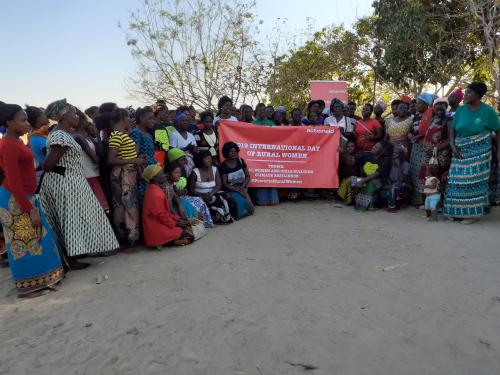The Effects of Climate Change in Chongwe District, Extension C of Kanakantapa
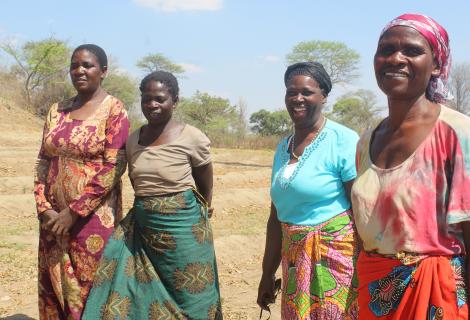
At least 500 female garden farmers of Kanakantapa in Chongwe are being hit hardest by the effects of Climate Change. Women like Margret Ntalasha rely on the yields of their river-bank gardening for income and for feeding their families. However, with the Chongwe River drying up, it leaves their gardens dry and with nothing to harvest. This has affected their livelihoods and they are now relying on odd jobs offered by commercial farmers in their respective communities to feed their children and grandchildren. As Margret explained, in frustration of the current status of her community and the harsh effects of climate change.
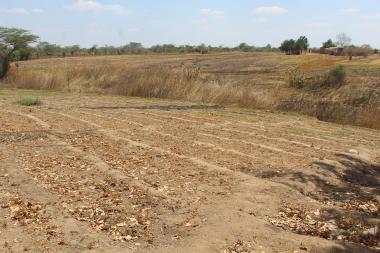
Margret also explained that her community is also facing challenges in accessing clean water due to the broken community borehole. To access water, community members buy water from those who have drilled private boreholes. This has further increased the burden on their economic status.
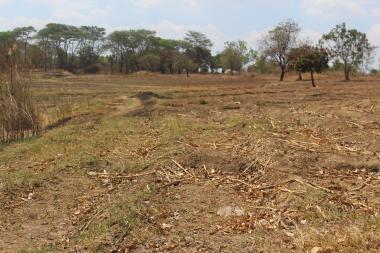
As we celebrate the International Day of Rural Women and World Food Day, AAZ stands in solidarity with rural women like Margret. We spent time with the rural women in Chongwe to understand the real issues that rural women face every day in supporting their families. Amplifying their voices and recognizing their efforts to respond to climate change through resilient agriculture practices. In celebrating International Day of Rural Women and World Food day, we recognize the contribution of women to the rural economy; in engaging themselves in the various socio-economic activities, predominantly, agricultural activities. Women contribute an estimated 60 – 80 percent to the food production, not only in their respective communities, but to the country at large.
However, with the effects of climate change and in our fight for climate justice, it is required for the world to see that these effects are very real, and they are happening right now. It is therefore imperative that the Zambian Government and the world at large, take effects of climate change very seriously and take action now to reverse these effects. It is very clear that the effects of climate change affect mostly those that rely on natural resources for their livelihood.
In the Republican President’s address to Parliament on the 13th September 2019 as he opened the Fourth Session of the Twelfth National Assembly, the President identified climate change as one of the key contributing factors to our economic challenges. In that regard, he emphasized on the call for climate change resilience in ensuring a sustainable economic growth.
However, the 2020 proposed national budget has not demonstrated that need. The environmental protection budgetary allocation which houses climate has reduced from an estimated K875 million in 2019 to K611 in million in 2020 representing 30% reduction in the budgetary allocation. Furthermore, the reduction in the proposed 2020 budgetary allocation towards environmental protection means that it represents 0.6% out of the total budgetary in 2020 compared to the 1% it has been representing in the past few years. We wish to remind the government that climate change resilience will not be achieved with a mare talk without significant financial commitment. It is our expectation therefore that if indeed climate change resilience is on top of government agenda, parliament must reconsider the 2020 budgetary allocation towards climate change resilience as they debate the budget.
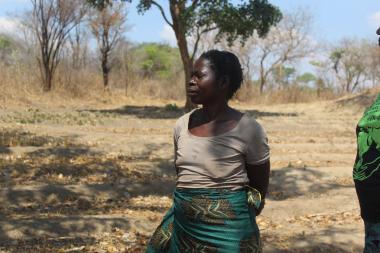
Therefore, we would like urge government to keep to their commitment in increasing efforts to reversing the negative effects of climate change. However, for this to effectively take place, it is mandatory that policies that are responsive to the needs of rural women and promote the rights of rural women to land and natural and productive resources are developed and ratified; system change to community-based control over natural resources are put in place in securing the livelihoods of the communities in rural areas and significant resources are allocated.
#PowerToRuralWomen
#ActNow
#ClimateChange
